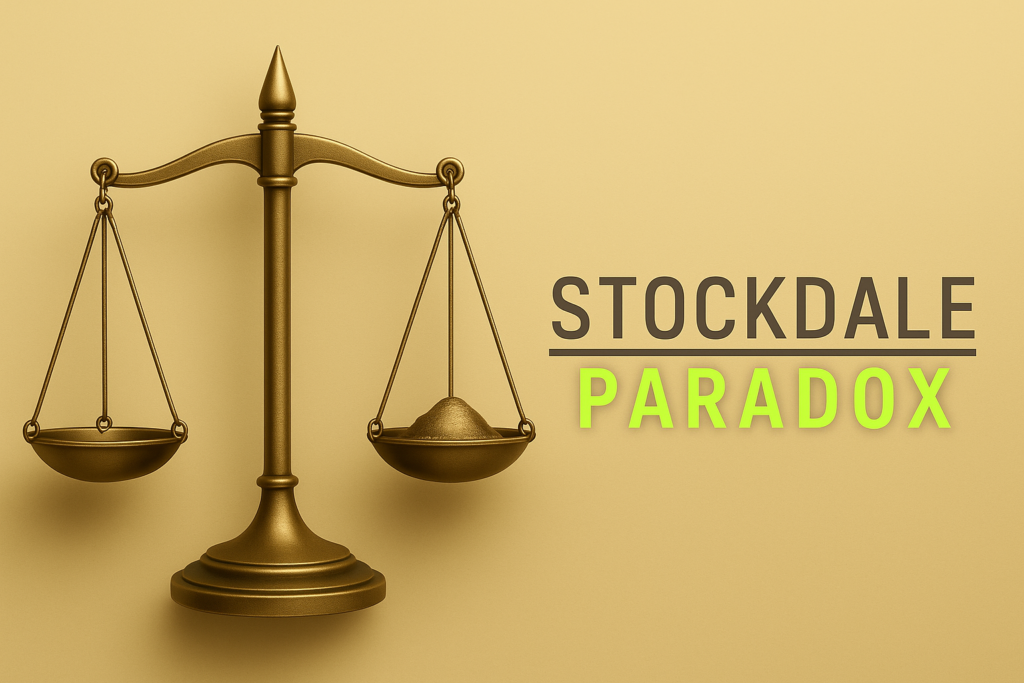Win at Life

The Stockdale Paradox
What it is – and why it’s useful
The Stockdale Paradox is named after Admiral James Stockdale, a U.S. naval officer who spent more than seven years as a prisoner of war in Vietnam.
When he was later, he said that what he learned from that time was that the men who struggled most were the optimists.
They would say,
“We’ll be out by Christmas.”
Then Christmas came and went.
then, “By Easter,”
Then Easter passed too. Each missed deadline chipped away at their hope.
Noticing how they struggled, Stockdale developed an alternative approach. He accepted that he might be there for years. He wouldn’t waste energy guessing when it would end. He focused instead on what he could control, at the same time firmly believing he was going to get home – however long that took.
That’s the paradox of his thinking model.
Why This Matters
You can face the brutal facts of whatever your situation is, and also believe you’ll get through it.
Most people tend to do one or the other.
They either stay upbeat and ignore what’s really happening (fingers in ears, lalala), or they focus so hard on the difficulty of the situation that their spirits sink and they lose hope.
Stockdale showed that the best coping strategy comes from doing both – accepting how tough things are but trusting in your ability to survive it.
It’s not about being positive or pessimistic.
It’s about staying anchored in reality without giving up on the future.
Real-life examples
You see this in people rebuilding their lives after a setback.
The patient recovering from illness who accepts that it will take time but focuses on their healthy future statistically recovers quicker and more completely than the impatient or depressed one.
After a slow season, the small business owner who honestly faces the numbers but refuses to lose momentum does better than the one who throws in the towel too fast or buries their financial head in the sand.
They’re not ignoring reality or pretending it’s easy but staying realistically hopeful and making decisions accordingly.
Try this today
Think of something that’s dragging on – a slow process, a waiting period, or an unfinished task.
Write down what’s true about it right now.
Then write one line you still choose to believe, without a timeline.
For example:
- “This situation is hard and taking longer than I expected.”
- “I’m still moving forward.”
Some things to think about
- Hope without honesty becomes fantasy.
- Honesty without hope becomes despair.
- Wisdom is in holding both.
Optional challenge
For one week, practise saying both parts of the truth.
When something goes wrong, say: “This is difficult.”
Then add: “And I can handle it/I’ll get through it/I’ve got a great plan/I’ve got a fantastic team.”
Notice how it calms your mind and keeps you from catastrophising.
A Buddh-ish take
“All that we are is the result of what we have thought.
It is founded on our thoughts, it is made up of our thoughts.”
– Dhammapada, Chapter 1
Back to Mindset Mechanics <
Back to The Vault <
References
